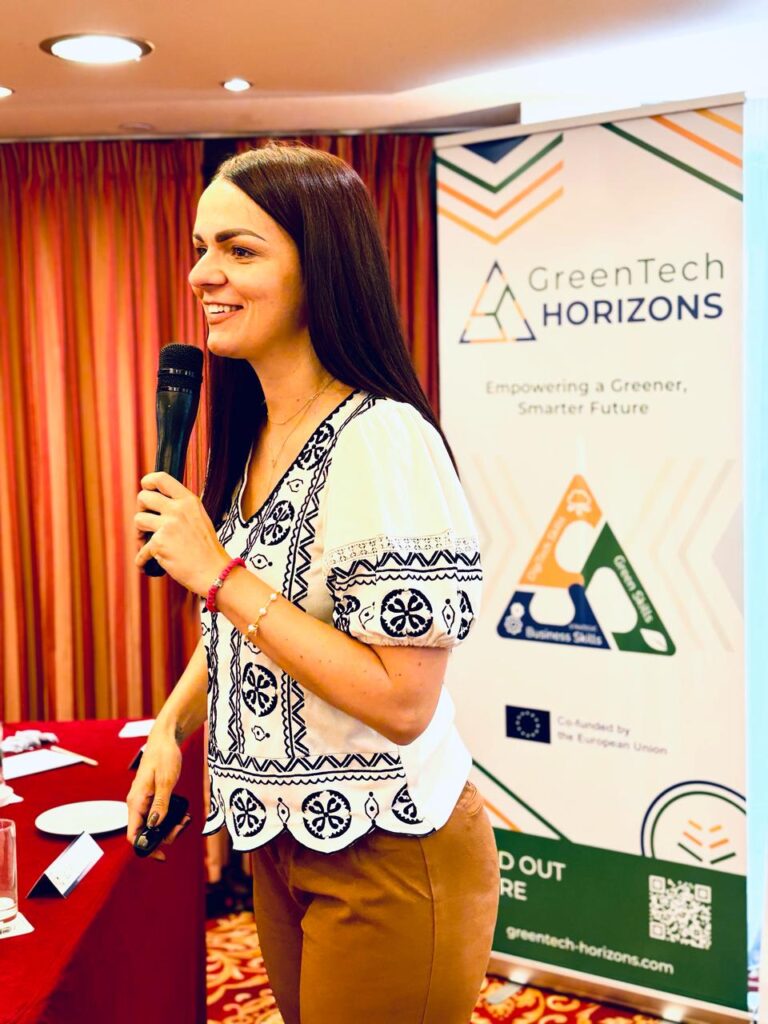Capacity Building through Competencies: Bridging Green, Digital, and Regional Development Priorities
The Advanced EU Funding & Project Innovation Camp, held from 2 to 6 June 2025 in Athens, Greece, served as a strategic platform for exchanging knowledge on EU project design and innovation practices. Organized by the European Academy, the event brought together over 35 professionals from more than 15 countries, including project managers, EU funding experts, Erasmus+ stakeholders, and institutional representatives from both EU and partner countries.
As part of the Project Showcases segment, the GreenTech Horizons initiative was presented by Dr. Danijela Ćirić Lalić (UNS / European Academy) as a model case study in curriculum modernization and cross-regional cooperation.

A Competency-Based Model for Green and Digital Transitions
The GreenTech Horizons presentation focused on how the project:
- Addresses capacity-building needs in higher education across the Neighbourhood East, Central Asia, and Asia;
- Integrates twin green and digital transition competencies into modern curricula;
- Fosters cross-border partnerships through Erasmus+ collaboration;
- Aligns educational outputs with EU labor market and sustainability goals.
The session emphasized the project’s structured methodology, particularly its WP2 and WP3 work packages, which outline the path from needs assessment and skills mapping to curriculum design and laboratory development.
Professional Engagement and Mutual Learning
Participants in the Innovation Camp—comprising trainers, consultants, EU proposal writers, and funding managers—expressed strong interest in the GreenTech Horizons model. Notable points of engagement included:
- Recognition of the project as a replicable capacity building framework;
- Interest in applying the Twin Green & Digital Competency Framework in other contexts;
- Exchange of ideas on impact-driven project design and education-to-employment linkages.
The project was cited multiple times throughout sessions on impact design, skills ecosystems, and competency-based education, reinforcing its role as a practical reference in ongoing EU program development.

